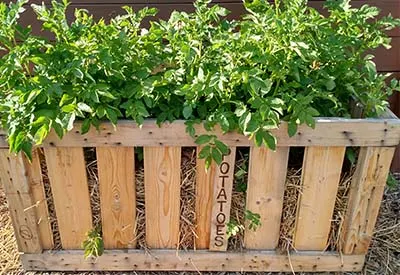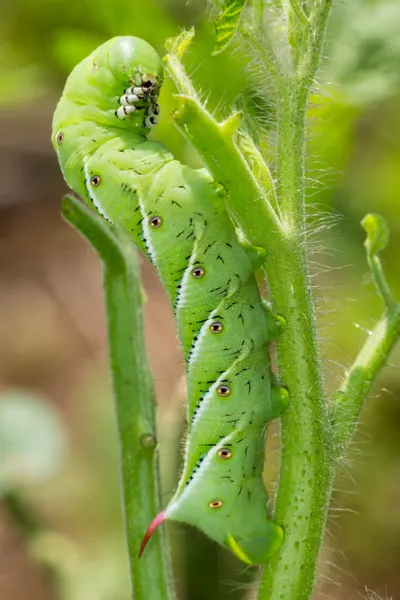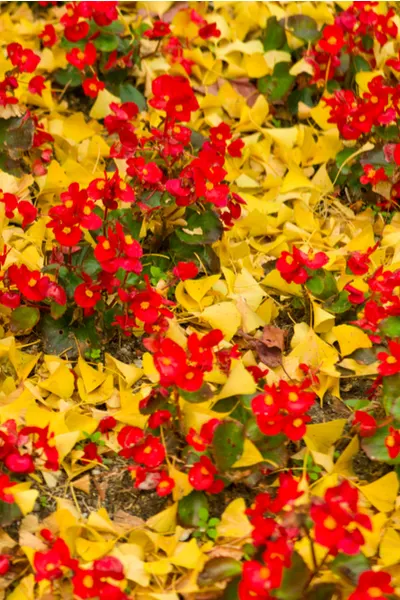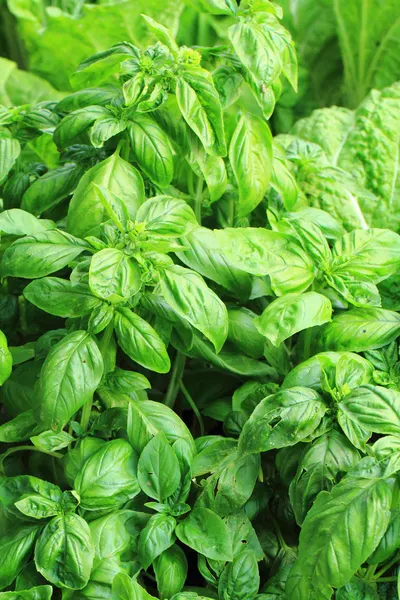As we plan our garden every year, we always like to include a big garden experiment.
In past years, it has led to quite a few innovations. And, of course, a few failures as well.
To a garden lover, taking chances and trying new things is all part of the fun.
It is, after all, how we discovered the ease of growing potatoes and sweet potatoes in crates. Not only is it simple, but its a great way to a huge, low-maintenance harvest. See : How To Grow Your Best Potato / Sweet Potato Crop Ever

And it is also where we learned to never again till by simply planting through a cover crop. See : Our Best Garden Experiment Ever
So what is on tap for this year?
Our Big Garden Experiment For 2019 – Companion Planting To The MAX!
With a full growing season on tap before leaving on our big much-anticipated 50 state cross-country trip in the fall, we wanted to try something big for the garden.
And this year it’s all about companion planting – and the power of the flower.
We love using companion planting in our garden. Companion planting is all about the relationships plants have to each when grown beside each other. (see Companion Planting Basics)
For instance, growing basil beside tomatoes is highly beneficial. Basil is a natural deterrent against aphids, beetles and the dreaded tomato hornworm. Growing basil near tomatoes is also thought to improve a tomato’s flavor.

But in addition to planting co-beneficial vegetable plants and herbs together, there are many flowers that can seriously aid in a vegetable garden’s overall health and vitality.
Many annual flowers are big in helping to repel pests and disease. They are also great in keeping away insects harmful to the gardener – like mosquitoes!
Even more, flowers can aid in keeping unwanted animals out of the garden. Animals that can be highly destructive to a garden. Like rabbits, squirrels, and even deer.
So we decided this year to try the power of flowers in our garden. In a very big, colorful way!
A Garden Filled With Color And Beauty – For A Big Reason!
This year, we are going to fill our garden with 4 extremely beneficial annual flowers and herbs. And I mean a lot of them!

Hopefully, it will create an explosion full of color in the garden. It should also be wonderful for our honey bees – and attract many additional pollinators.
And of course, big help with above mentioned repelling of pests, disease and critters.
The Plan For The Big Garden Experiment
In each and every growing row around our vegetable plants, we will plant 3 varieties of annual flowers that are extremely helpful to a garden. Marigolds, Nasturtiums, and Sweet Alyssum.
We will also be planting a large quantity of basil as well. Especially in our tomato rows.
We will still use straw in the rows to cover the soil. But planted through the straw will be all of the flowers and herbs.

And we don’t mean a few plants here and there. We intend to crowd the growing space around the veggie plants with flowers.
In fact, hopefully, by season’s end, you will only be able to see the vegetable plants and blooms. Not only should it look beautiful, the foliage will help conserve moisture in the soil.
In addition, the outer edges of the garden fence will be seeded thick with marigolds. This will help serve as a natural first barrier to animals as well. Plus -we think it will look pretty darn colorful too!
Here is a quick look at the four annuals we will be using, and why.
The Four Annuals and Herbs With True Flower Power
Marigolds
Marigolds are amazing at attracting beneficial insects, and repelling bad ones.
Parasitic wasps that help control cabbage and tomato worms love marigolds. So do ladybugs. And they feast on aphids and mealy bugs.
Their aromatic flowers help keep away damaging insects and animals too. Squirrels, rabbits and even chipmunks are not especially fond of them.
Nasturtiums
Nasturtiums are super-easy to grow from seed. And they are one of the best natural insect repellents around. They produce a chemical in the air that keeps away white flies, aphids and squash bugs.
And mosquitoes absolutely hate them! Seed Link: Nasturtium Seed Mix

Basil
As stated above – basil is simply a wonder plant.
Not only does it help tomatoes and repel insects – it is wonderful as a culinary herb. I cannot wait to see and smell it growing all over our garden. Seed Link : Basil Seed
Sweet Alyssum
The tiny blooms of sweet alyssum are mighty helpful in the garden.
They are incredible at attracting a huge variety of beneficial insects. And, like marigolds and nasturtiums and basil, they can be grown easily from seed. Seed Link : Sweet Alyssum Seed
Here is to Flower Power, Companion Planting, and our Big Garden Experiment! Jim and Mary. To receive our 3 Home, Garden, Recipe and Simple Life articles each week, sign up for our free email list.
You can also follow us on Facebook, Twitter, Pinterest, or Instagram. This article may contain affiliate links.
